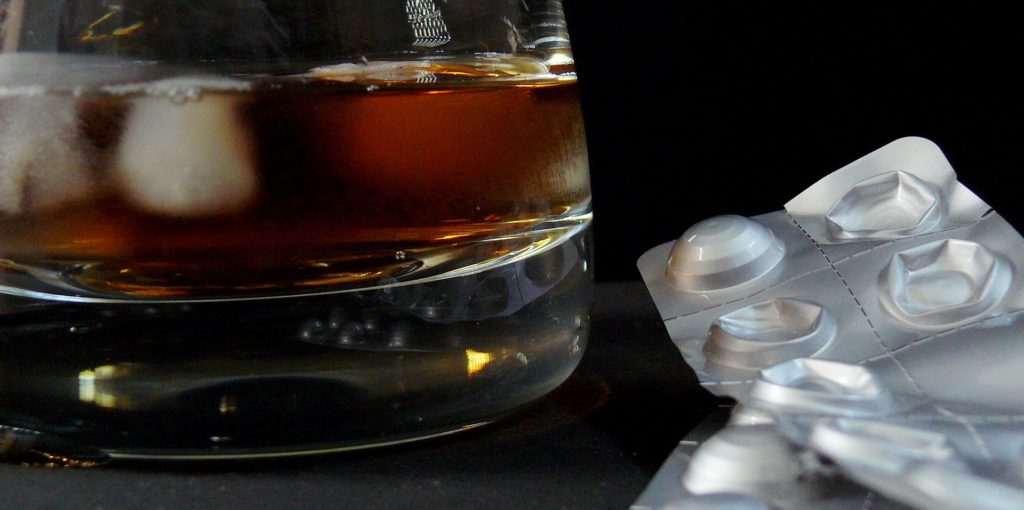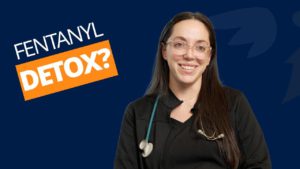
Breaking Chains with Summer House: Top Drug Addiction Treatment Center in Miami
As the shadows of drug addiction continue to grip many lives, finding the right treatment center becomes a beacon of hope. Summer House, located in

October 19, 2020
Alcohol is the most easily accessible addictive substance in the United States, which is why it’s commonly used with medications like benzodiazepines. Some people combine alcohol with benzos to feel heightened effects such as euphoria, while others may use these substances together to experience only the effects of alcohol without knowing how it can interfere with their medication. Either way, it’s important to know why using alcohol with benzos is extremely dangerous, and how it can lead to serious problems with dependence and addiction.
Here’s a closer look at the consequences of mixing alcohol with benzos, and how a benzodiazepine detox center can help you safely withdraw from both substances at the same time.
There are many reasons people might use alcohol and benzos at the same time, such as to enhance the effects of one or both substances, or because they are under the impression this practice is safe because both substances are legal. Additionally, alcohol is easy to obtain and widely used across the United States. According to the National Institute on Alcohol Abuse and Alcoholism, 55.3% of adults consumed alcohol during the past month, while 70% consumed alcohol during the past year.
People may use alcohol with benzos to relax after a long, busy, and stressful day, or because they want to have more fun at parties and events. Some may also combine these substances to cope with symptoms of mental health disorders such as anxiety, depression, and PTSD. Regardless of the reason, combining alcohol with benzos is considered substance abuse since benzodiazepine prescription labels specifically state these medications should never be used with alcohol.
The act of using two substances like alcohol and benzos at the same time is known as polydrug use. The National Institute on Drug Abuse reports that polydrug use is more common among adolescents than adults; therefore, if your teen is using benzos, it’s important that you educate them about the dangers associated with using these medications with alcohol and other substances.
Benzodiazepines and alcohol both work as sedatives. Benzos belong to a class of medications called central nervous system (CNS) depressants, which work by slowing down CNS processes in the body to help users feel calm and relaxed. Since benzos and alcohol are both sedatives, using these substances at the same time can severely impair the CNS to cause loss of consciousness, overdose, and death, according to the CDC.
The possible effects of benzo and alcohol polydrug use include:
The Substance Abuse and Mental Health Services Administration (SAMHSA) reports that the combination of benzodiazepines with alcohol is associated with as high as a 55% increase in the risk of a serious outcome (hospitalization or death at a hospital emergency department) compared with benzos alone. Between 2005 and 2011, 38% of visits to hospital emergency departments that involved benzodiazepines and alcohol resulted in hospitalization or death.
Addiction usually develops gradually over time with repeated use of addictive substances like benzos and alcohol. A person who uses these substances together regularly will likely become tolerant of their usual doses and amounts and will need more to feel the effects. They may increase their usual daily dose of benzos or drink higher amounts of alcohol to achieve the desired effects.
The risk of physical dependence on benzos and/or alcohol increases when people start using higher amounts. A person is physically dependent on a substance when they experience withdrawal symptoms after abruptly discontinuing the substance — such as headaches, nausea, and shaking. Many people believe addiction and dependence are the same; however, addiction is a psychological condition in which a person is unable to control their drug use and is unable to stop despite multiple attempts to do so and despite experiencing negative consequences.
Benzo and alcohol addiction can be safely and effectively treated using detox and a rehab program. Detox helps people withdraw from drugs and alcohol to overcome physical dependence on these substances, while rehab helps people change harmful behaviors and attitudes that may be driving or contributing to their addiction. All detox and rehab programs are customized for each patient based on the substances on which they’re dependent, and reasons they became addicted to these drugs in the first place.
Detox treatments may take place at a dedicated detox facility, or a drug rehab center as part of a comprehensive addiction treatment program. Detox facilities usually treat alcohol and benzo dependence in an inpatient or residential setting where patients can be closely monitored for complications as they go through withdrawal. Rehab programs can take place in either an inpatient or outpatient setting depending on whether patients want to stay at the facility as they recover or live at home so they can also manage their school, work, and family lives.
During alcohol and benzo detox, patients receive 24-hour medical care and supervision to ensure they do not experience withdrawal-related complications. Benzodiazepines and alcohol are both sedatives that slow down the CNS; therefore, stopping these substances abruptly can cause the CNS to suddenly speed up to increase the risk of seizures, rapid heart rate, and other severe effects. Detox helps patients stay safe while withdrawing from benzos and alcohol and reduces the risk of complications.
Benzo and alcohol withdrawal symptoms can begin anytime within hours after the last dose. The time-lapse between symptoms and the last dose will vary from one patient to the next based on the severity of dependence and the number of drugs that were being used. For instance, a person who used a higher proportion of alcohol may begin to experience symptoms within 6 hours, while a person who used a higher proportion of a short-acting benzo like alprazolam may not experience symptoms for at least 24 hours. Detox itself can last anywhere between several days or weeks depending on how each patient responds to treatment and withdrawal.
Alcohol and benzo detox usually involves the use of medications that help stabilize the CNS and reduce withdrawal symptoms. Guidelines from the World Health Organization suggest stabilizing patients on a dose of diazepam equivalent to that of the benzo previously being used, which can help lessen the severity of withdrawal. Diazepam is a long-acting benzo proven to be well-tolerated among patients who are going through benzo and/or alcohol withdrawal.
Following detox, many patients transition into an alcohol and benzodiazepine rehab program to receive counseling and behavioral therapy that helps them identify and change behaviors that may have led to their addiction. Counseling and therapy can address the root causes of addiction such as stress, trauma, and mental illness to help people adopt healthier coping methods and lifestyle behaviors that support long-term abstinence from drugs and alcohol.
Summer House Detox Center offers safe, effective benzodiazepine and alcohol detox in Miami, FL for those who need help fighting and recovering from polydrug use. We offer a wide range of quality, luxurious amenities, and evidence-based therapies that can greatly enhance your recovery from drug and alcohol dependence.
If you need help recovering from benzo dependence and addiction, contact Summer House Detox Center today at 800-719-1090 to find out whether our detox treatments and services can be covered by your health plan. You can also visit us at 13550 Memorial Highway Miami, FL 33161. We are open 24 hours a day, 7 days a week.

As the shadows of drug addiction continue to grip many lives, finding the right treatment center becomes a beacon of hope. Summer House, located in

Are you looking for a safe and compassionate drug detox center in Kendale Lakes, Florida? If so, look no further than Summer House Detox Center.

Are you looking to escape addiction in Homestead, Florida? Summer House Detox Center is one of the best detox centers in the area. Located just
For immediate assistance, please call our Admissions Specialists at 800-719-1090.
Speak With A Qualified Addiction Specialist 24/7